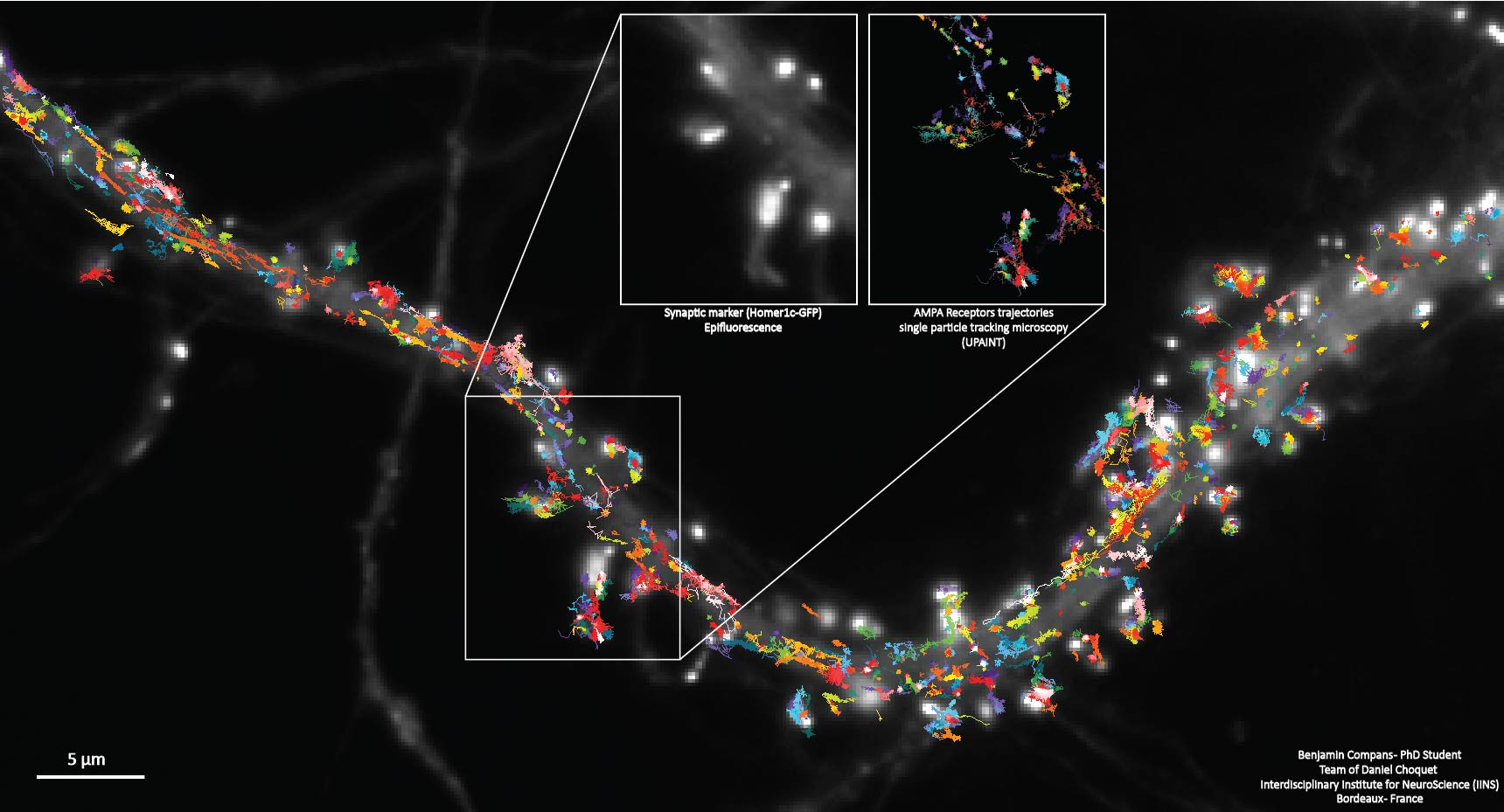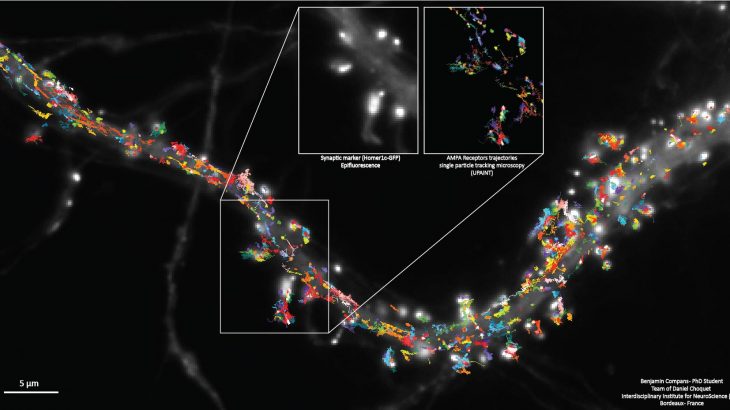
Single particle tracking of AMPA Receptors at the membrane of cultured rat hippocampal neurons by UPAINT
Benjamin COMPANS, PhD student
Team Daniel Choquet – Dynamics of synapse organization & function
Interdisciplinary Institute for NeuroScience
What is your thesis topic?
My PhD aims to decipher the role of the dynamic and the nano-organization of AMPA receptors during synaptic plasticity. AMPA receptors are responsible for the fast excitatory transmission between neurons and learning and memory mechanisms are possible thanks to the great capacity of synapses to modify their properties through plasticity and reorganization of AMPARs at synapses.
What kind of techniques do you use?
In the laboratory of Dr Daniel Choquet, we use super-resolution microscopy that allows us to obtain information at the single molecule level. Depending of the technique used, I can observe either the mobility of single proteins exchanging in and out synapses, or observe their organization at synapses with a resolution of around 20nm. As we are interested to synaptic functioning as well, we couple these imaging techniques with electrophysiology to record synaptic activity.
What is a typical day for you?
I usually arrive in the lab around 8:30am and I start my day with a coffee. Depending of the kind of microscopy I want to do, the week will be organized differently (fixed/immunolabelled or living neurons). But let’s take one day during which I perform single particle tracking experiment. The day will start with a first observation of mature cultured neurons in order to check their health, and their transfection level (usually, I did transfect neurons with a fluorescent synaptic marker). Then I perform acquisition during 6 to 8 hours, cut by 1 hour lunch pause. This is link to the fact that each neuron that I observe is recorded for 30-60 minutes (basal state – plasticity induction – new state), allowing me in a day to record less than 10 cells. At the end of the day, I launch some analysis of those cells. To give an idea, I will say that one neuron recorded in single particle tracking (cf picture) for 30 minutes (1 min every 5 min) will require 1 hour of computer analysis. During this period of computer processing, I read some scientific papers, talk with colleagues, or start to plan other experiments.
What do you prefer in your PhD student life?
There are several things that are appreciable during a PhD. Of course to be in a team/institute with nice colleagues makes the everyday life better. But if I had to choose one thing, I would probably choose the fact to go in conferences around the world. Of course it does not happen as much as I would like but more that I would without this PhD.
What do you want to do after your PhD ?
Once my PhD will be completed (in a few months), I expect to keep on research as a post-doctoral fellow. It is too soon to say in which lab I will go or what I will do, but several ideas are starting to grow in my mind 🙂
Any advices for Master students who think about doing a PhD?
Consider the PhD as a great work and life experience, but you have to be involved in this work. I think this life is really particular and if you are not passionate by it, it will be difficult to give the energy required to succeed and complete a PhD.
